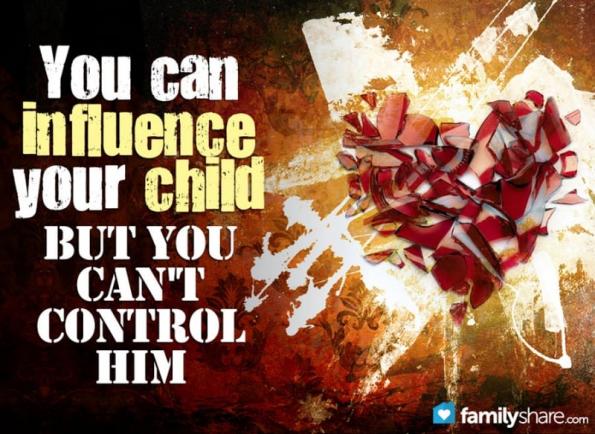
Published in Ser Padresby Denhi Chaney on September 27, 2013
Translated and adapted by Anders Peterson from the original article "Tres formas de saber si estamos usando el control psicológico como padres"� by Denhi Chaney
Being a parent grants us great satisfaction in our life. At the same time, it has its moments of difficulty, frustration and confusion. This is particularly true when we have children who have a strong will and a determined personality. This does not mean that it is a bad personality. Rather it forces us to learn more and to use all of the available options during the child raising years. The problem appears when we run out of options, and we choose to use strategies that seem to be good but actually do not provide the benefits we seek after.
Although the idea of using psychological control as parents is fairly new, it has been researched. We know about the consequences that derive from practicing this technique with our children. Using psychological control has been closely related to low self-esteem, depression, anxiety, low grades in school, anger management problems, insecurity, poor relationship between parents and children, etc. If you have already experienced any of these situations, it is important to understand that it is never too late to rectify your actions. In addition, you must consider that using psychological control can be particularly harmful when used frequently. If you have used it occasionally, the results may not be as dramatic. However, it is important for parents to refrain from using it. The following are three typical situations that describe how parents use psychological control with their children:
1. Providing them with love and affection based on their obedience
Sometimes, when we have children that are disobedient, we are blinded by our frustration in a challenging moment. As a result, we may consider denying love to our children to make them see the mistake they have made because we believe this will change them. The truth is, this will not help them change. On the contrary, it will cause deep pain for them because they need to receive the message that they are worthy to be loved even when they are disobedient. This does not mean that we justify what they did rather they are loved because they are our children.
2. Adopt the attitude of feeling unloved by our children when they disobey us
When our children disobey us we may be tempted to believe that they do not love us. This attitude, by itself, does not imply psychological control at all. Nevertheless, if we manifest it frequently and in every situation, (not only when our children are disobedient) there are negative consequences, and we stop creating effective bonds between parents and children. For example, the following phrases illustrate the aforementioned attitude: "If you do not eat your food, it means you don't love me."� "You did not do what I asked, it is so clear that you don't love me." "You are so rebellious, you don't love me, do you?"� "When you love someone, you should do what you are asked to do."� All of these comments harm the relationship we have with our children because their disobedience and rebellious acts should never be related to their love for us. In most cases, children love their parents regardless of their actions. They are simply going through a learning process.
3. Make them feel guilty regarding your feelings when they do not make choices or perform actions that comply with your wishes.
Another strategy that we may use as parents is to make them feel guilty in order to have them do what we are asking them to do. This may occur in situations when they have the freedom to choose, but we have our own wishes. For example, if we have teenagers who are about to choose a career and they choose one that does not match our preference, the following comments may fall under this category of making them feel guilty: "I had hoped that you would choose this career. I feel so sad that you picked a different one."� "I would have been so proud if you had chosen this other career."� Another example can be illustrated when we have young children, and we manipulate them to feel what we desire. For example, manipulating them to avoid feeling sadness for a legitimate reason we may do things to redirect their feelings. The following examples will illustrate this point: "Mommy is going to cry if you are sad."� "If you are sad, I will not be proud of you."� "I feel so bad when you are sad, and you don't want me to be sad, do you?"� There are other additional similar cases. The idea behind this is that when parents try to change a decision or affect their mood when they are legitimate and are not acts of disobedience, they are actually exercising psychological control.
Because we are imperfect parents, we make mistakes. This is why I emphasize the fact that if you have previously done any of the above, don't waste too much time feeling guilty. You must simply look for other ways to motivate and teach your children. Talk to them about this article. If it is familiar to them, or if they have been affected in any way, remember that your love for them will work miracles, and it can heal any wounds. It is never too late to mend your way and become a better parent.

